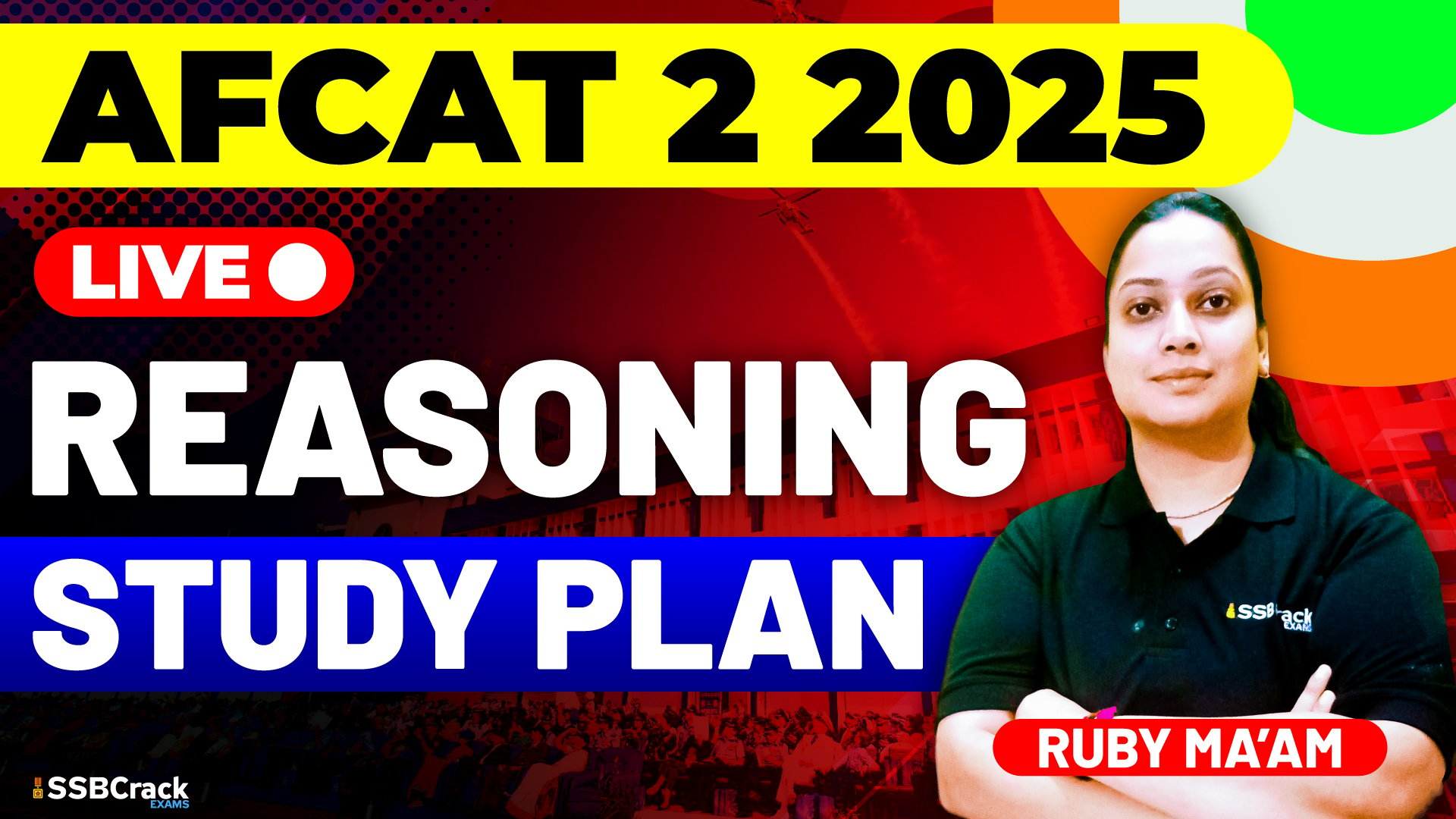AFCAT (Air Force Common Admission Test) is a gateway to a prestigious career in the Indian Air Force, and among its key components is the Reasoning and Military Aptitude Test. This section tests your analytical thinking, pattern recognition, and logical ability — essential traits for an officer.
To help you ace this section, here’s a 30-day Reasoning study plan along with strategy tips and topic-wise breakdown.
🎯 Understanding the AFCAT Reasoning Section
- Types of Questions: Verbal and Non-verbal reasoning
- Difficulty: Easy to moderate
- Topics Covered:
- Odd One Out
- Pattern Completion
- Analogy
- Series (Number & Alphabet)
- Venn Diagrams
- Embedded Figures
- Mirror & Water Images
- Dice and Cube problems
- Blood Relations
- Direction Sense
- Coding-Decoding
- Figure Classification
Preparation Strategy for AFCAT Reasoning
1. Start with Basics
- Understand concepts before solving. Don’t memorize patterns.
- Learn step-by-step approaches to solve family tree or series questions.
2. Diagram is Key
- For direction, blood relations, and Venn diagrams, always draw figures.
- This avoids confusion and improves accuracy.
3. Speed + Accuracy = Success
- Reasoning rewards quick recognition of patterns.
- Regular timed quizzes help sharpen speed.
4. Previous Year Questions Are Gold
- AFCAT repeats patterns. Solving past papers helps understand trends.
5. Avoid Overthinking
Don’t waste too much time on any one question in the exam. Move on and return later if time permits.
Tips for Mastering Reasoning
- Practice Daily: Reasoning improves with regular practice. 30–45 minutes a day is enough.
- Use Diagrams: Draw family trees, direction arrows, and figures for clarity.
- Time Management: Don’t get stuck on one puzzle. Learn to skip tough ones during the exam.
- Mock Tests = Success: Simulate exam conditions often to reduce pressure and boost speed.
- Analyze Mistakes: Learn from every error — especially those in mock tests.







